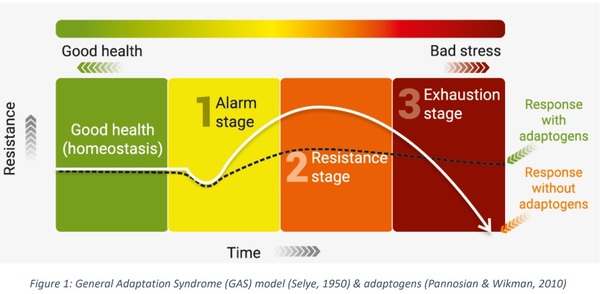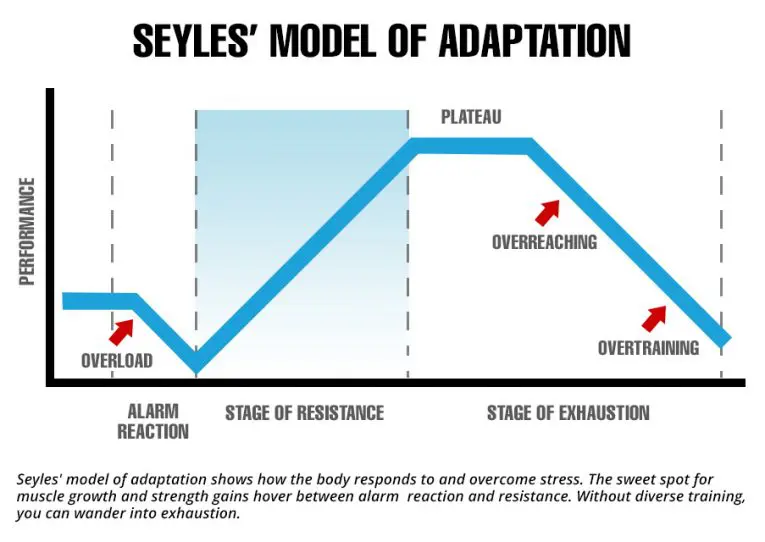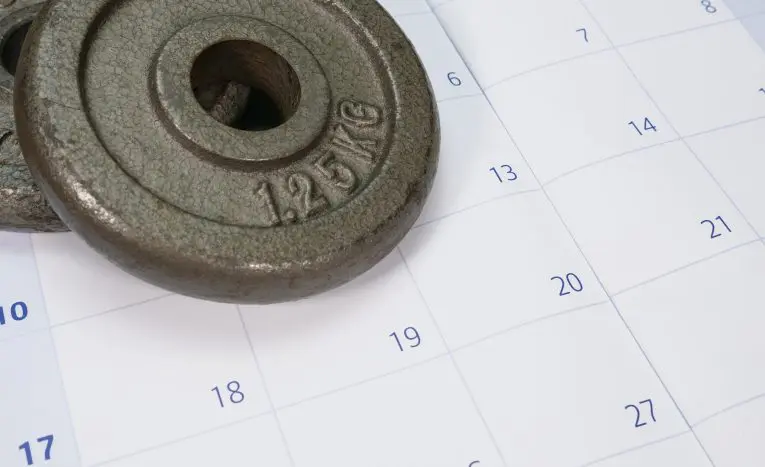If you want to build muscle mass or increase your strength, your success is dependent on three pillars. If you pay too little attention to any of these pillars, your progress will be slower than it could be, and you could end up wasting a whole lot of time and effort.
Those three pillars are:
Training
For a workout to be effective, it needs to be intense enough to trigger the adaptive mechanisms responsible for increasing muscle size and strength. Easy workouts won’t cut it.
In addition, your training needs to be specific to the goal you are pursuing, which is why powerlifters and bodybuilders train differently. You’ll need to consider your workout split too, adopting the best one for your needs and goals.
Finally, your workouts need to be consistent. You need to pay your dues in the gym week after week and month after month to make meaningful progress. If you keep skipping workouts, your progress will soon grind to a halt.
Nutrition
You are what you eat, or so the saying goes. Whatever you are training for, be it bulking or cutting, or getting fitter or stronger, you need to eat correctly to support your training.
Level Up Your Fitness: Join our 💪 strong community in Fitness Volt Newsletter. Get daily inspiration, expert-backed workouts, nutrition tips, the latest in strength sports, and the support you need to reach your goals. Subscribe for free!
If you don’t provide your body with the calories and nutrients it needs, you’ll effectively be running on empty, and your energy levels will plummet. The food you eat (and the supplements you use) has a massive impact on the recovery process.
Recovery
The final pillar for success that you need to consider is recovery. Training takes a lot out of your body, causing muscle catabolism (breakdown) and microtrauma, as well as depleting your energy and fatiguing your nervous system. It can take days and even a week or more to recover from a tough workout.

Because of this, it’s unwise to train every day, and most workout programs include a couple of days off so you can rest up and recover between workouts.
But, despite these built-in rest days, fatigue can gradually accumulate to such a level that you still feel tired and cannot recover from one workout to the next. That’s where deload weeks come in.
What Is a Deload Week?
Deload weeks are exactly what they sound like – a week during which you reduce the intensity, volume, or duration of your workouts. A deload week could involve doing no training at all, using less weight, doing fewer sets, or just doing a different type of training.
The idea is that, when you deload, you give your body some extra time to recover so that, when you return to training, you are better rested and, therefore, able to work out harder than before. Athletes usually deload after competition and may also do a sort of deload in the lead up to a big event. This is called tapering or peaking.
Deload weeks can be planned or unplanned. Planned deloads are built-in to a lot of strength training programs, such as Jim Wendler’s 5/3/1. On 5/3/1, you deload every fourth week.
Alternatively, you can deload anytime that you aren’t feeling as recovered as usual. Maybe your performance is decreasing so you decide that a break from training would be a good idea. This would be an unplanned deload.
You could end up being forced to deload too. For example, your gym closes for a refit, or you go on vacation, and the hotel gym doesn’t have the equipment you usually use, so you have to do a different workout.
Planned or unplanned, a deload week will provide your body with the time it needs to rest and recover so that, when you return to training, you are refreshed and ready to give it your all.
Also read, nSuns 531 LP Powerlifting Program Guide with Spreadsheets
How Does a Deload Week Work?
Deloading is based on the science of how your body responds to and deals with stress. This is called the general adaptive syndrome (GAS) model first developed by psychologist Hans Selye (1).
Initially used to explain how the body reacts to psychological stress, the GAS model has since been applied to the effects of exercise. After all, training is a form of stress, too, albeit a physical one. There are three stages to GAS.
Alarm
This is the cause of the stress, properly called the stressor. In this instance, it’s the workout you have just completed. As already mentioned, a challenging workout causes a whole lot of catabolism. Your muscles are damaged, energy levels are depleted, and your strength and fitness actually decrease, albeit very slightly.
Resistance
During this stage, your body starts to recover and repair itself. This can take hours, days, or weeks depending on how intense your workout was and how much attention you pay to boosting recovery.
For example, an easy core workout might only need 24-48 hours of recovery, whereas setting a new deadlift personal record may take over a week. If you fail to eat or sleep enough, this phase will take longer.

Providing you don’t train again too soon and allow recovery to happen, you should super compensate and “bounce back” bigger, fitter, and stronger than before. The trick is to rest long enough for supercompensation to occur, but not so long that you start to detrain.
Exhaustion
If you train too hard and too often or don’t pay enough attention to recovery, you could find yourself going backward instead of forwards. This is called the exhaustion stage. In this stage, the demands of training exceed your ability to recover.
Maybe you are training longer or harder than usual, or simply not eating enough or getting enough sleep. Stresses from other aspects of your life, such as money or work worries, can also affect your ability to recover from your workouts.
If allowed to continue, this stage can result in overtraining. Overtraining is a state of chronic fatigue that can take weeks to overcome. Training during the exhaustion stage will just make matters worse, dig you into a deeper rut, and it will take you even longer to recover from.
Deload weeks are designed to stop you from going from the resistance stage of GAS to the exhaustion phase. Even if you have rest days every week and pay attention to nutrition and recovery, the stresses of intense training can still accumulate from one week to the next.
A short break from training can stop these stresses pushing you over the edge into overtraining. Taking a deload week off BEFORE you need it can save you several weeks or even or months if you become so tired that you HAVE to take time off training.
You should also feel more rested and stronger after a properly timed deload week. A deload week can also help rekindle your motivation to train, as long periods of uninterrupted workouts can affect you mentally as well as physically.
How to Deload
While a deload CAN involve taking a week off training and all other physical activity, complete breaks like this are not usually a good idea. While you will recover, you may start to lose the training habit, making it harder to get back into the gym when you finish your deload.
Level Up Your Fitness: Join our 💪 strong community in Fitness Volt Newsletter. Get daily inspiration, expert-backed workouts, nutrition tips, the latest in strength sports, and the support you need to reach your goals. Subscribe for free!
You may also find that you begin to feel stiff and lethargic, making your return to training harder than it needs to be. Also, a complete break from training could cause a slight decline in fitness and strength.
So, instead of just giving up training for a week, use one of the following deload methods.
1. Reduce training volume
With this deload method, you keep your weights the same but do fewer sets per workout. This is a good option for anyone who wants to maintain strength during the lead up to a competition. Simply limit yourself to just 1-2 sets per exercise and eliminate any unnecessary exercises from your workout to reduce volume further.
For example, if your chest and triceps workout usually look like this:
- Bench press – 5 sets of 5
- Incline dumbbell press – 4 sets of 8
- Dumbbell flyes – 3 sets of 10
- Push-ups – 3 sets of max reps
- Skull crushers – 4 sets of 10
- Triceps push-downs – 4 sets of 12
Total: 23 sets
Your deload workout would be something like this:
- Bench press – 2 sets of 5
- Dumbbell flyes – 1 set of 10
- Push-ups – 1 set of max reps
- Skull crushers – 2 sets of 10
- Triceps push-downs – 1 set of 12
Total: 7 sets
This should be enough training to maintain your current strength while allowing you to recover more fully.
2. Reduce the intensity
In strength training, the intensity of a given workout is usually dependent on the amount of weight used and expressed as a percentage of your one-repetition maximum. Definitions aside, this deload method involves using much lighter weights than normal, something around 50-60% is ideal.
So, if you bench press 100kg for five sets of five, you will use the same 5 x 5 set and rep scheme but load the bar with just 50kg instead.
3. Reduce volume AND intensity
If you are feeling especially tired, you may benefit from even easier workouts. For this method, do fewer sets and reps with less weight. One way to do this is the 50% method.
For this deload week, halve everything in your workout. That means half the sets, half the reps, and half the weight. This will be a VERY easy workout, but that’s the point.
4. Change your workout
With this deload method, you replace your usual workout with an alternative. This might mean doing cardio instead of lifting weights, doing bodyweight exercises instead of your regular gym-based program, joining a yoga class, or swimming instead of pumping iron.
The idea is to stay active while giving your body a break from the rigors of your normal workout. This deload method is physically and psychologically refreshing and an excellent choice for anyone who feels burnt out to the extent that their motivation for training is suffering.
Planned or Unplanned Deload Weeks – Which Is Better?
So, should you plan your deload weeks in advance, or just take one when you feel like you need it? Both options can work, and there are pros and cons whichever you choose.
With planned deloads, you take your breaks according to a predetermined schedule. Popular deload frequencies include:
- 3 weeks on/1-week deload
- Every 6-8 weeks
- Every 10-12 weeks
The good thing about planned deloads is that you don’t have to think about it too hard. Just adjust the frequency of your deload based on how hard you are training and how well you recover. Take your week off when your next scheduled deload rolls around. Simple!
If you are an older exerciser, who is training very hard and often, more frequent deloads may be best. Younger exercisers, and anyone who has good recovery, can deload less often.
On the downside, with planned deloads, your physiological and psychological state may mean your deload arrives too early or too late to be beneficial. If you deload before you need it, you may miss out on a week of what would otherwise have been very productive training. But, if you are starting to feel burnt out and your deload is still a few weeks away, you run the risk of overtraining.
The bottom line is that planned deloads CAN work, but you should not be a slave to your schedule. Be prepared to move your deload according to how you feel and perform.
With unplanned deloads, you take your break whenever you feel you need to. Maybe your progress has hit a wall, you are feeling tired or sore, or are losing your enthusiasm for training.
This approach can work too, but very dedicated (and stubborn!) exercisers may be reticent to take a week off from training, even though they know they should. Some people may be tempted to take a deload week even though they don’t need one. This, of course, is basic laziness in the guise of deloading.
Unplanned deloads also tend to be reactive instead of proactive. In other words, fatigue will have already set in when you start your deload.
Unplanned deloads can work, but it takes experience and discipline to use and not abuse this method. It’s probably best left to experienced exercisers who can better judge their physical and psychological needs.
If you can’t decide whether planned or unplanned deloads are best for you, try them both so you can make an informed decision. If in doubt, start with planned deload weeks and then adjust the frequency based on how you feel.
Deload Weeks – Wrapping Up
Deload weeks can help maintain your progress and prevent overtraining. They can also prevent mental burnout and workout boredom. If you are training hard and consistently and want to avoid being forced to take time off because of tiredness and overuse injuries, a deload can help.
A lot of exercisers are reticent to take time off training, and while that dedication deserves kudos, sometimes, the best way to maintain your progress is with a training break. Contrary to what you might think, a deload week won’t cost you strength, muscle size, or fitness. Instead, after your deload, you should bounce back feeling stronger and more energized.
Finding the right deload frequency and method for you may take a little experimentation but, one thing is for sure, it’s always better to take a week off voluntarily than be forced to take several weeks off because you start to feel overtrained.
References:
1 – PubMed: Stress and the General Adaptation Syndrome https://www.ncbi.nlm.nih.gov/pmc/articles/PMC2038162/


















